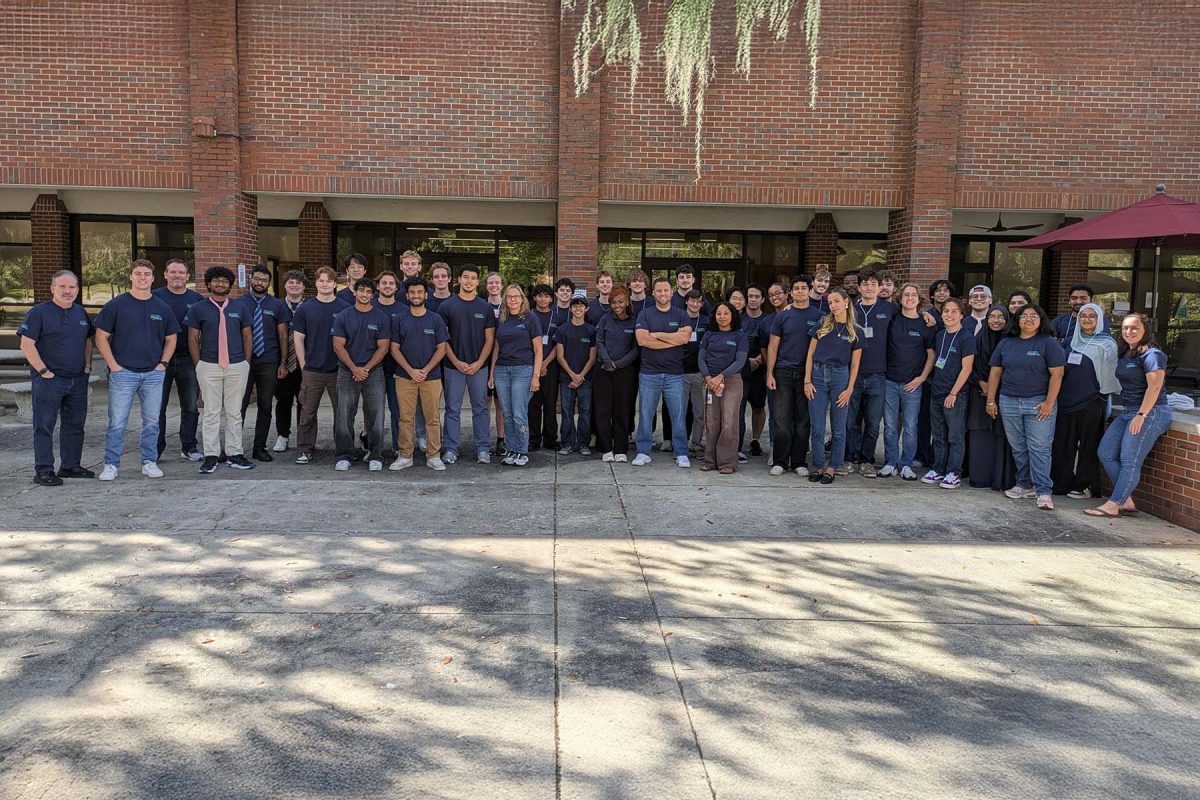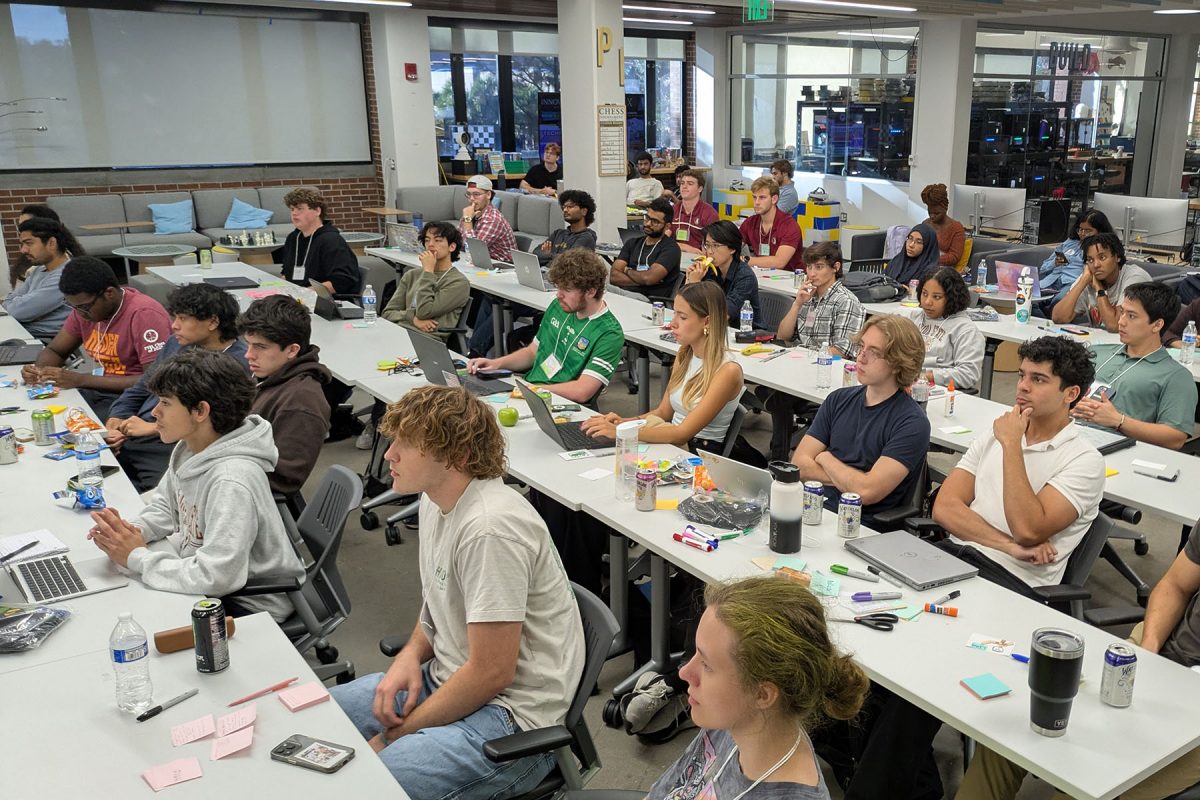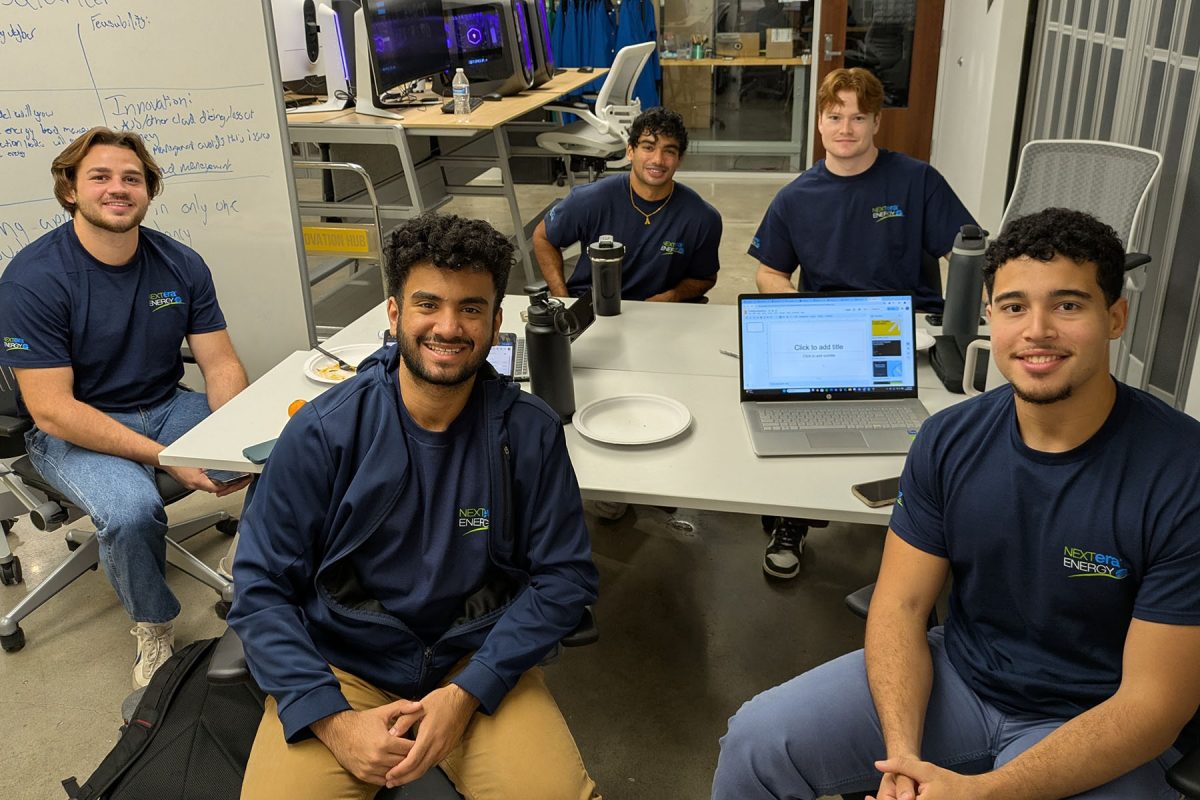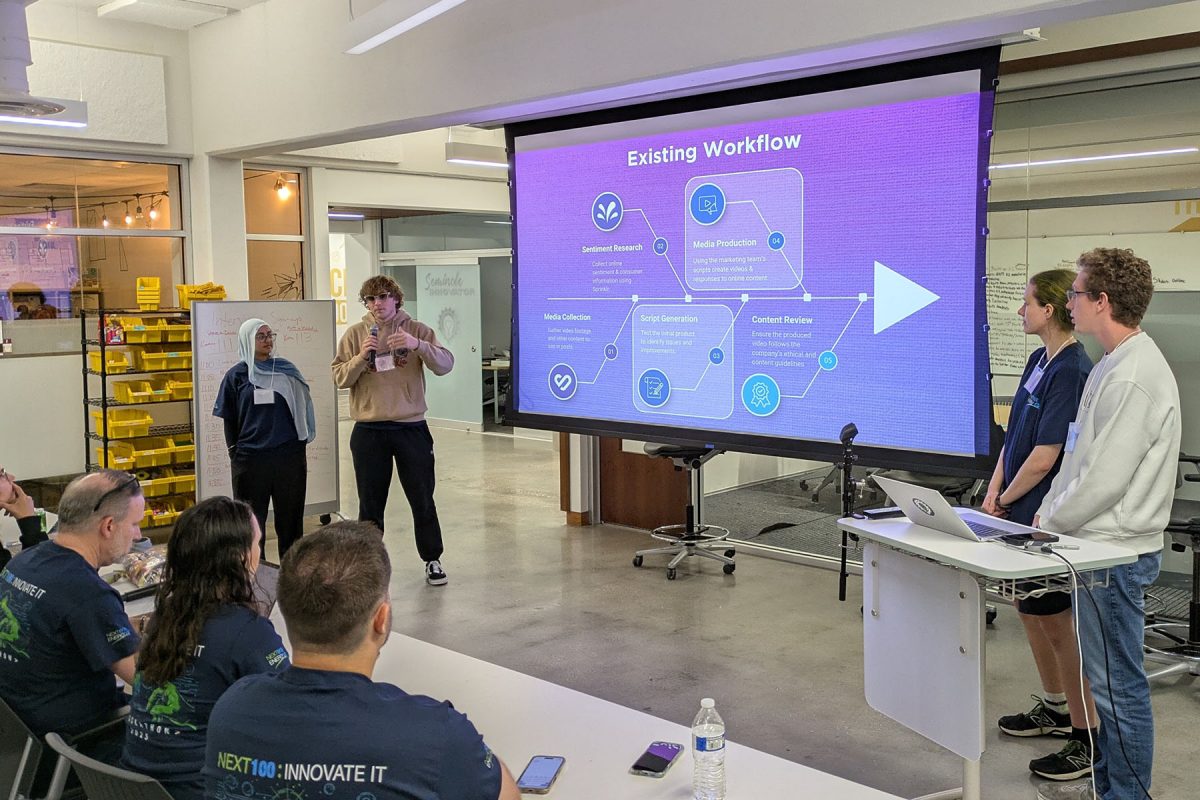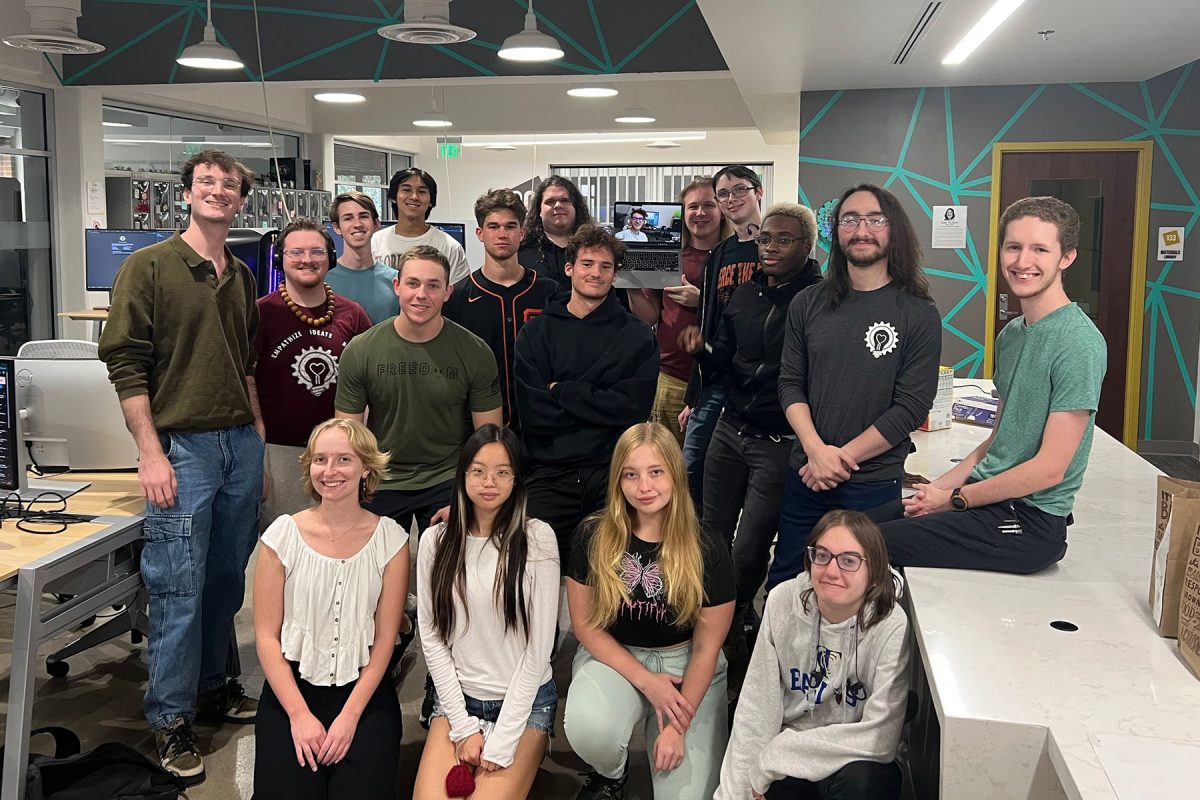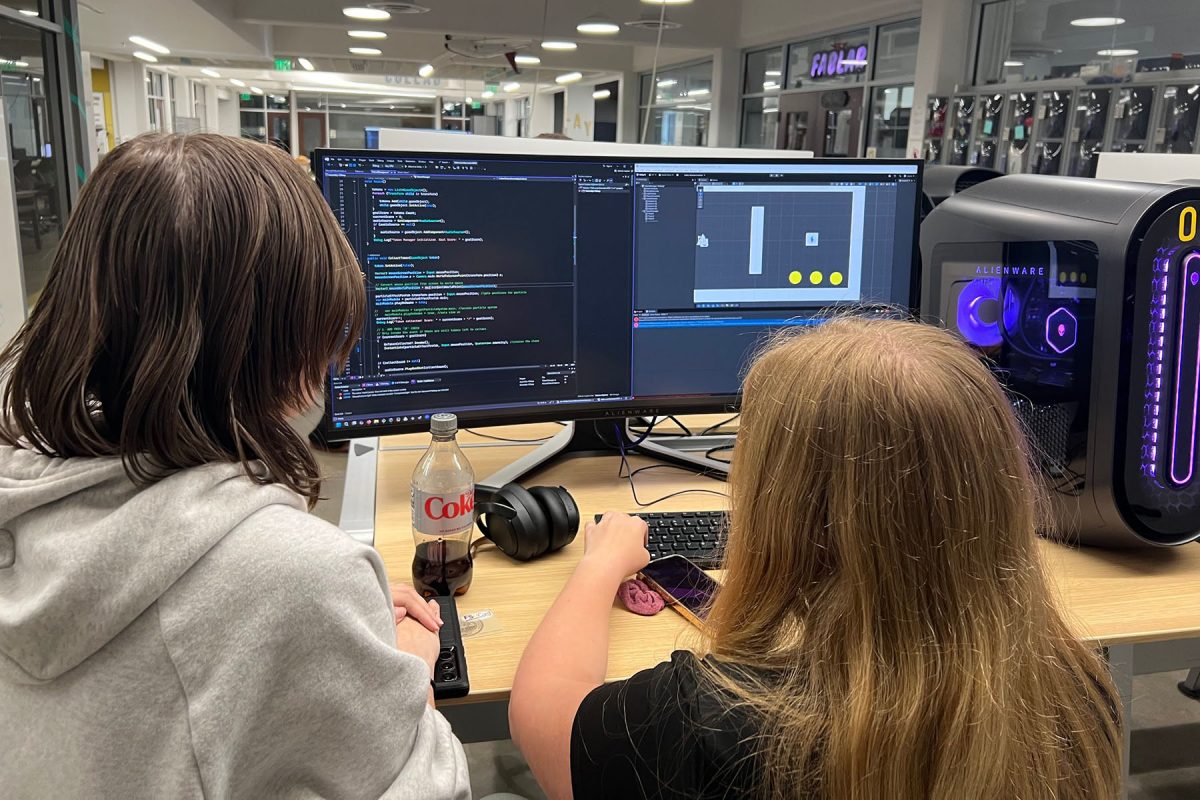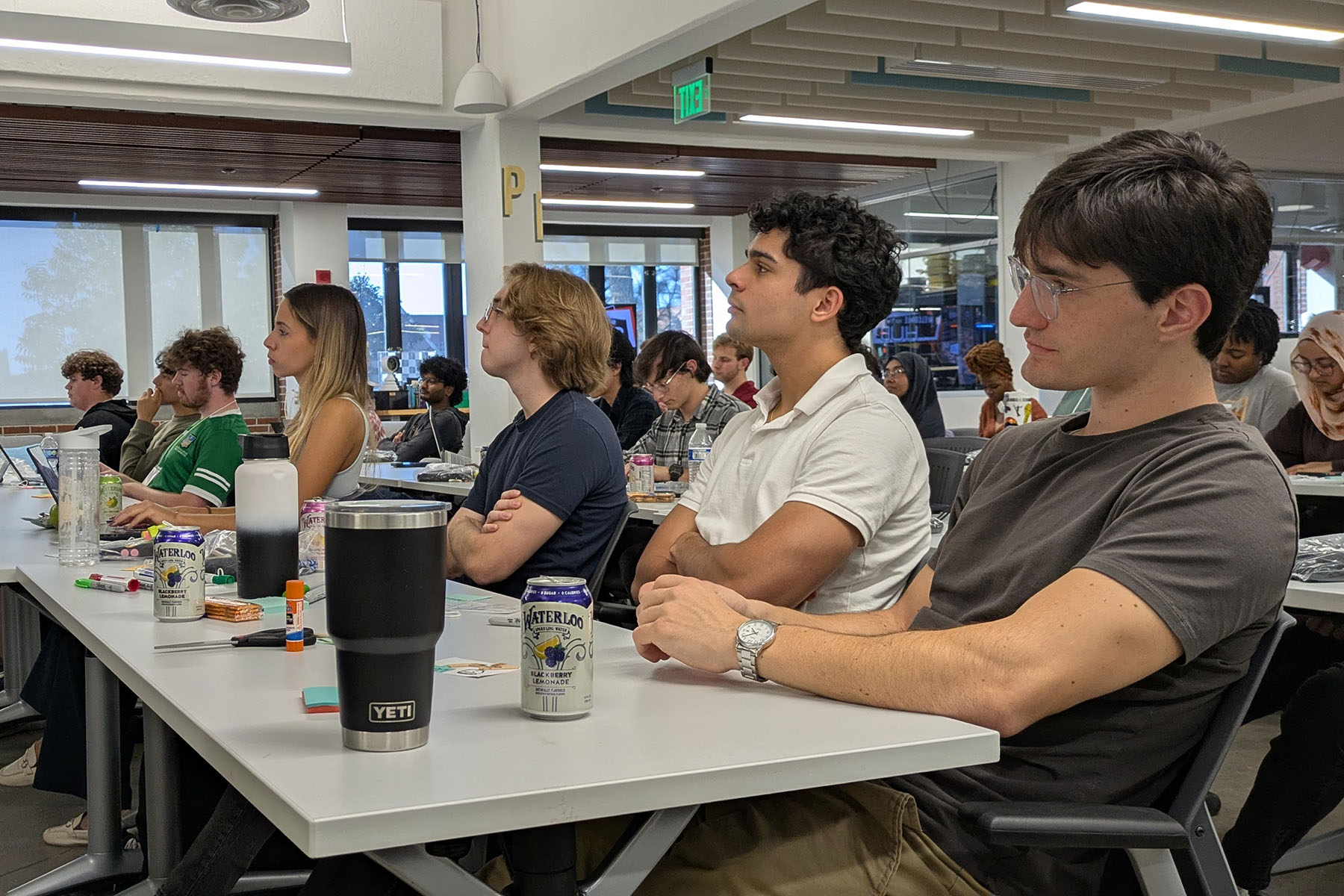
Florida State University’s Innovation Hub has been buzzing with activity this month as dozens of students volunteered to participate in immersive educational events.
Through hackathons, design sprints and game jams, the Innovation Hub is redefining traditional learning by emphasizing collaboration, creativity and real-world problem-solving.
“These recent events are intensive problem-solving exercises that emphasize self-directed learning with expert guidance in a condensed timeframe,” said Ken Baldauf, founding director of the Innovation Hub. “We’ve seen firsthand how transformative these experiences are for everyone involved. Through ongoing research, we’ll better understand their long-term benefits and use those findings to shape innovative educational models.”
Last weekend, the Innovation Hub partnered with NextEra Energy — the parent company of Florida Power & Light — to host the Next100 Hackathon. Students were challenged to develop innovative solutions to protect the power grid from cyberattacks and natural disasters.
After a two-hour briefing by seven industry experts, teams of three to five students collaborated to research, reframe problems, ideate and prototype solutions. Throughout this process, they received guidance and support from mentors representing NextEra and the Innovation Hub.
“The hackathon was an amazing and eye-opening experience,” said Aakanksha Pathak, a junior in the College of Arts and Sciences. “I not only learned a lot about cybersecurity and how technology can protect critical systems, but also how people’s behavior plays such a big role in security. Working alongside so many creative minds taught me that innovation isn’t just about coding — it’s about collaboration, communication and understanding the human side of technology.”
First place went to the team Nextguard AI, an AI-enhanced cybersecurity layer that predicts, detects and neutralizes threats across IT and OT networks before they escalate. The winning team included Dakota Turner, a first-year student in Industrial and Manufacturing Engineering, Aakanksha Pathak, a junior in the Department of Computer Science and Farhana Taiyebah, a graduate student in Scientific Computing.
“Seeing our final project come to life made me so proud,” Turner said. “It showed me that I belong here, that I have a voice and something real to contribute. This was the push I needed to confirm I’m right where I’m supposed to be.”
The event left participants energized and inspired, with many walking away with new skills and a renewed sense of purpose.
“This was an incredible opportunity to innovate and design solutions with real impact,” Taiyebah said. “Competing alongside brilliant minds and seeing our idea recognized was truly inspiring. We’re grateful to the FSU Innovation Hub and NextEra Energy for fostering a space where imagination and purpose intersect.”
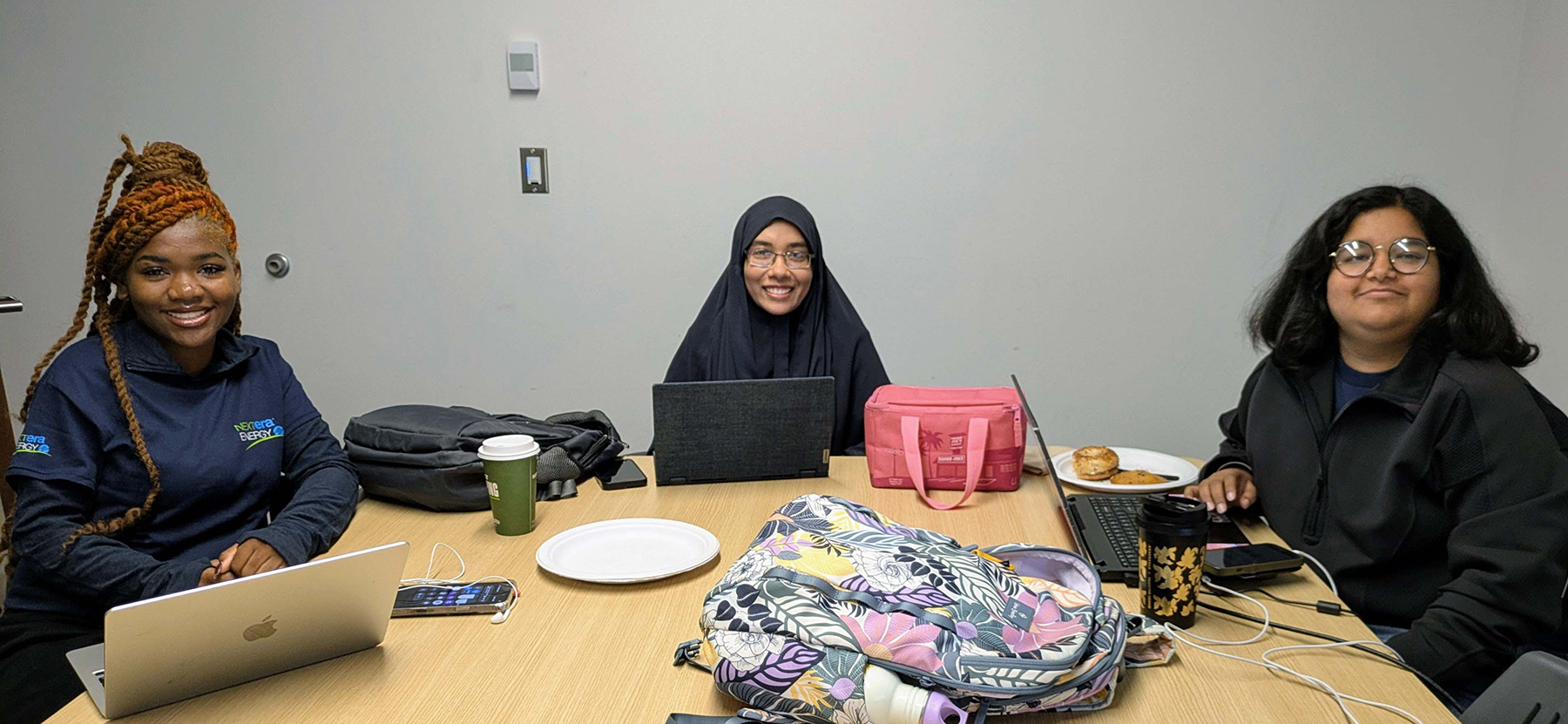
A weekend earlier, the Innovation Hub’s Immersive Media Lab hosted the DevilUp Horror Jam, an intercollegiate game jam organized by FSU’s student-led Devl’up organization.
For 48 hours, teams worked intensively to develop the scariest and most creative horror video games.
“Game Jams are a beautiful capsule for students where they take control of their learning,” said Jackson Anderson, assistant director of Immersive Media Design at the Innovation Hub. “As a team they negotiate and confront what problems to solve, how to solve them, and hold each other responsible at each step of the way.”
FSU teams dominated the competition, claiming three of the top five spots. The highest-ranking FSU entry, Radio Six — a survival horror game set in a dark hospital basement — placed second overall and earned first place for “scariest game.”
The team behind Radio Six included Jake Younan (art and programming), Ares Gregory (art, programming and level design), Mitchell Thai (sound design and programming), Donovyn Gantt (programming), Camryn Whitley (animation), David Berger (programming and technical art) and Julian Olivier (programming).
FSU Assistant Professor of Instructional Systems & Learning Technologies Bret Staudt Willet is conducting research within the Innovation Hub, examining the broader educational impact of its hands-on events.
“The processes that occur during intensive events like Design Sprints and Game Jams are a microcosm of learning and making in everyday life,” Willet said. “All the work of understanding your goals, figuring out how to get there, finding the resources you need, and knowing when you’re done — it’s full self-directed learning played out on a very short timeline. By studying what participants do in the Innovation Hub, we have a window into how learning works more generally.”
These hands-on challenges equip students with practical innovation skills to tackle pressing real-world issues, from cybersecurity threats to immersive storytelling.
“We’re excited to kick off a major Design Sprint with Amazon/AWS during the last weekend of January, followed by another during the Festival of the Creative Arts in February and a third sponsored by the College of Business in March,” Baldauf said. “Through these initiatives, we hope to spotlight innovative models for engaging students in the thrill of learning, equip them with in-demand skills and showcase why FSU stands out as the most innovative university.”
For more information about the Innovation Hub, visit innovation.fsu.edu.




